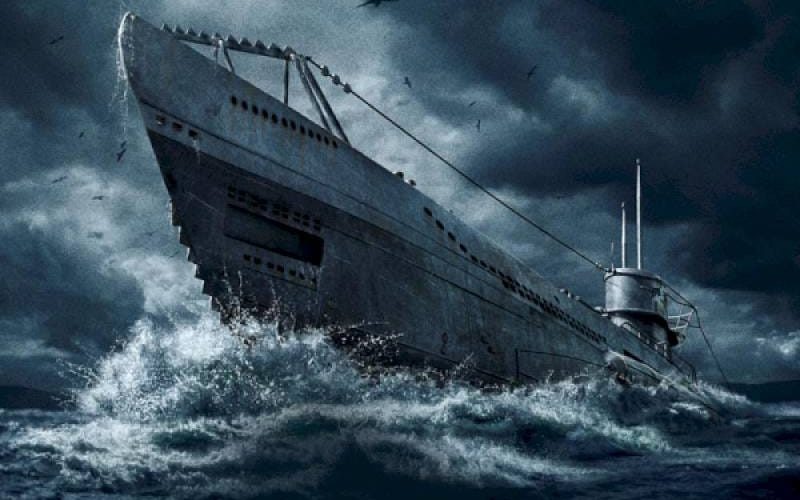
“Das Boot,” directed by Wolfgang Petersen and released in 1981, is a gripping and immersive portrayal of submarine warfare during World War II. Based on Lothar-Günther Buchheim’s novel of the same name, the film chronicles the harrowing journey of the crew of U-96, a German U-boat, as they embark on a dangerous mission in the North Atlantic.
The film stands out for its intense realism, psychological depth, and technical prowess, making it one of the most acclaimed war films ever made.
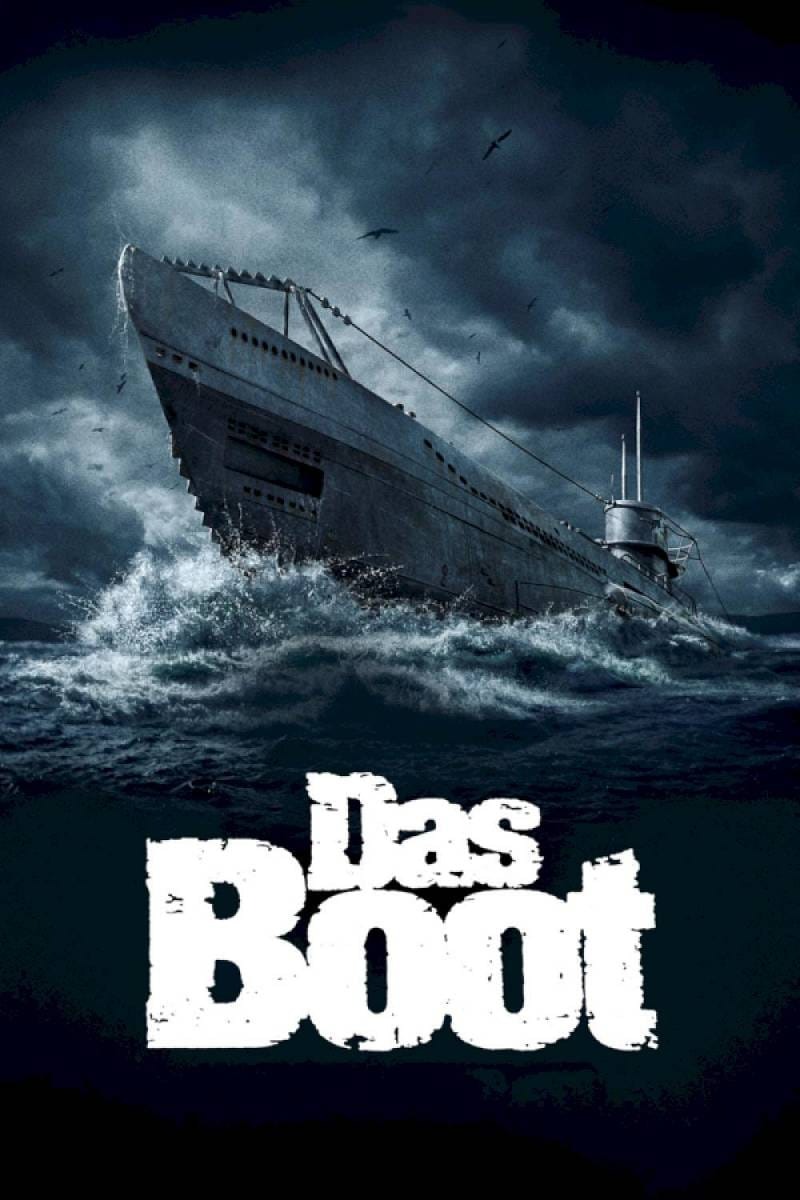
The narrative is centered on the experiences of the U-boat crew, led by the stoic and experienced Captain (Jürgen Prochnow). The film’s strength lies in its ability to humanize the German sailors, portraying them as men caught in the brutal machinery of war rather than faceless enemies. This approach fosters a sense of empathy and understanding, highlighting the universal horrors of war regardless of national allegiance.
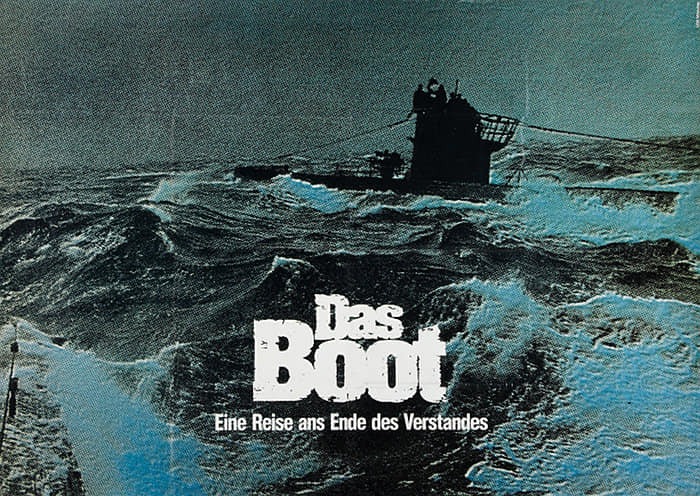
Petersen’s direction is masterful, utilizing tight spaces and claustrophobic camera angles to convey the suffocating environment of the submarine. The use of handheld cameras and natural lighting further enhances the realism, immersing the audience in the tense and perilous conditions faced by the crew. The sound design is equally impressive, capturing the creaks, groans, and ominous silence of the submarine, which heightens the suspense and sense of impending doom.
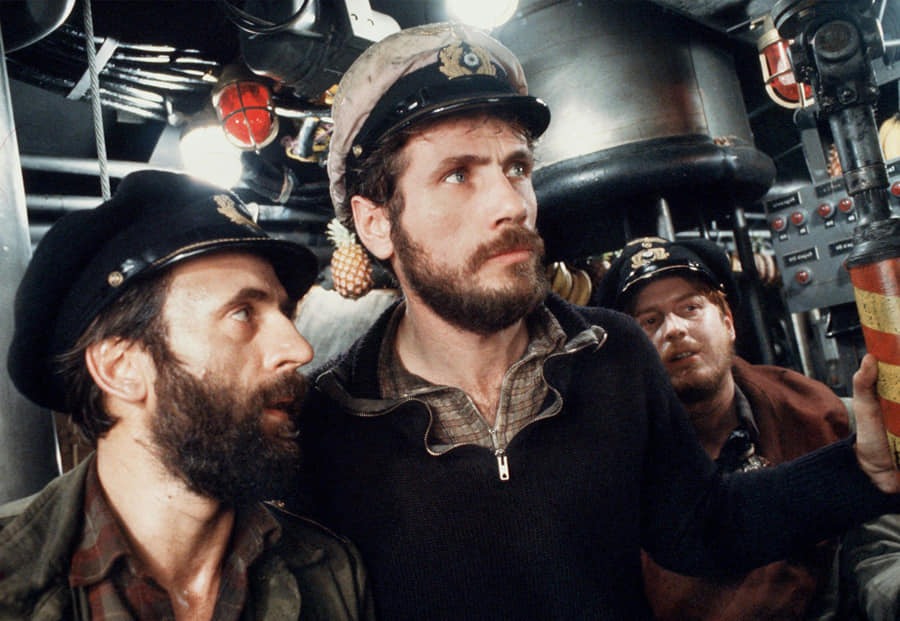
The performances are exceptional, with Jürgen Prochnow delivering a standout portrayal of the Captain, whose calm demeanor and leadership are tested by the relentless pressures of war. The supporting cast, including Herbert Grönemeyer as the war correspondent Lt. Werner, adds depth and authenticity to the ensemble, capturing the camaraderie, fear, and resilience of the crew.
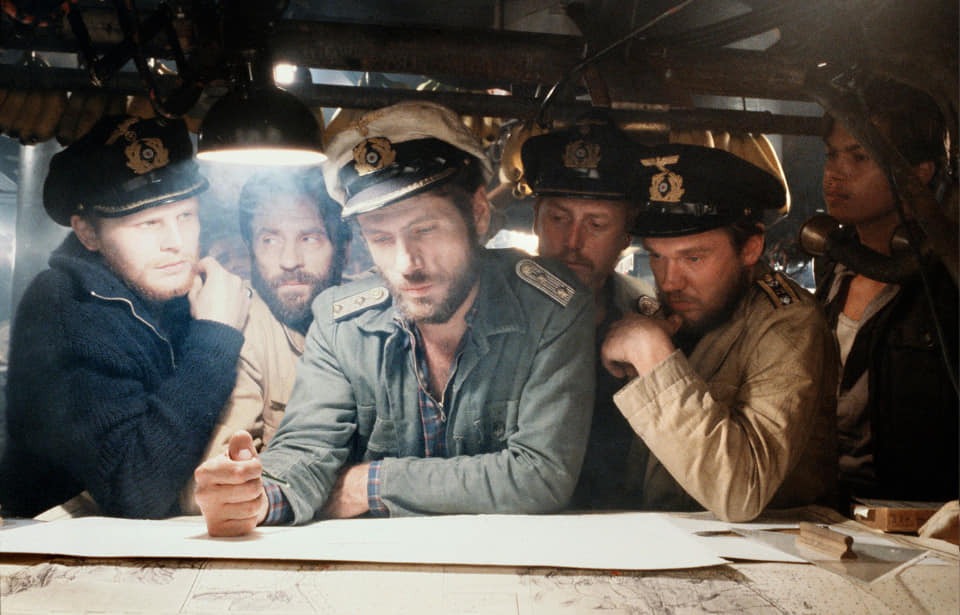
“Das Boot” is not just a war film; it is a profound study of the psychological and physical toll of warfare. Its unflinching depiction of life aboard a U-boat, combined with its technical excellence, has earned it critical acclaim and numerous awards. The film’s impact is further amplified by its haunting score, composed by Klaus Doldinger, which underscores the tension and melancholy of the narrative.
